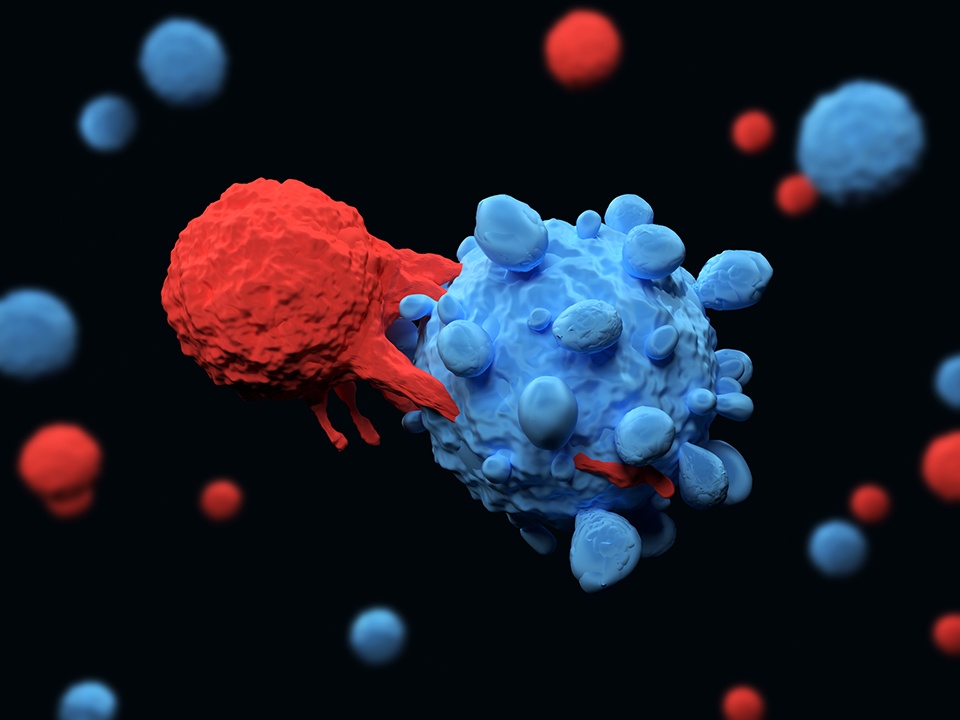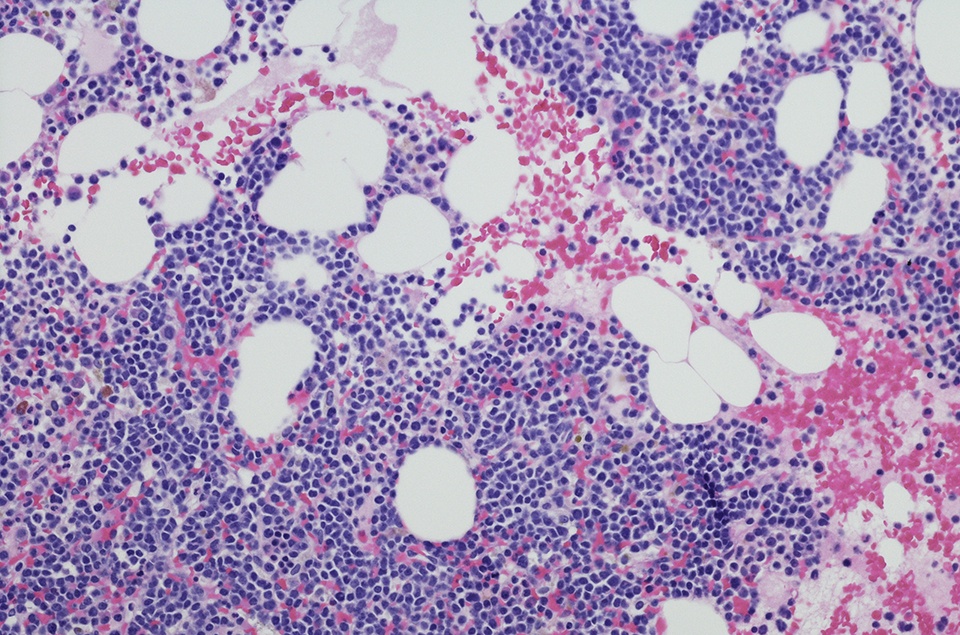
In in vitro and in vivo preclinical models, the combination of magrolimab with venetoclax plus azacitidine increased phagocytosis and prolonged survival in AML cells, according to research presented at the 2021 ASH Annual Meeting. The findings were reported by lead author Yannan Jia, from the Department of Leukemia at the University of Texas MD Anderson Cancer Center in Houston.
Magrolimab targets CD47, a macrophage immune checkpoint that functions as a “don’t eat me” signal on cancer cells by binding SIRPa on macrophages and blocking phagocytosis, the researchers explained. Cancer cells evade phagocytosis by overexpressing CD47, and high CD47 expression in AML has been associated with inferior outcomes.
In the present preclinical study, Ms. Jia and coauthors evaluated whether blocking CD47 via magrolimab, when combined with the BCL2 inhibitor venetoclax and the hypomethylating agent azacitidine could create a synergistic effect to induce “eat me” signals on leukemic blasts, thereby enhancing phagocytosis.
First, the investigators tested the combined efficacy of magrolimab and venetoclax plus azacitidine in vitro in a phagocytosis assay, using monocytes isolated from seven healthy donors. The combination appeared to significantly increase phagocytosis, not only in parental but also in venetoclax-resistant and p53-mutant cells, when compared with either treatment alone. “Further proteomics studies to identify additional ‘eat me’ signals following venetoclax-azacitidine treatment are ongoing,” the authors reported.
Next, the researchers examined the therapeutic efficacy of magrolimab alone or in combination with venetoclax-azacitidine in AML patient-derived xenografts models. Results from mouse models revealed that magrolimab reduced leukemia burden, delayed leukemia progression, and significantly extended survival. However, venetoclax-azacitidine alone had no or minimal impact on tumor burden or survival.
Given these findings, investigators have launched a clinical trial of the magrolimab and venetoclax-azacitidine combination, which has shown high rates of preliminary efficacy, the authors noted.







 © 2025 Mashup Media, LLC, a Formedics Property. All Rights Reserved.
© 2025 Mashup Media, LLC, a Formedics Property. All Rights Reserved.